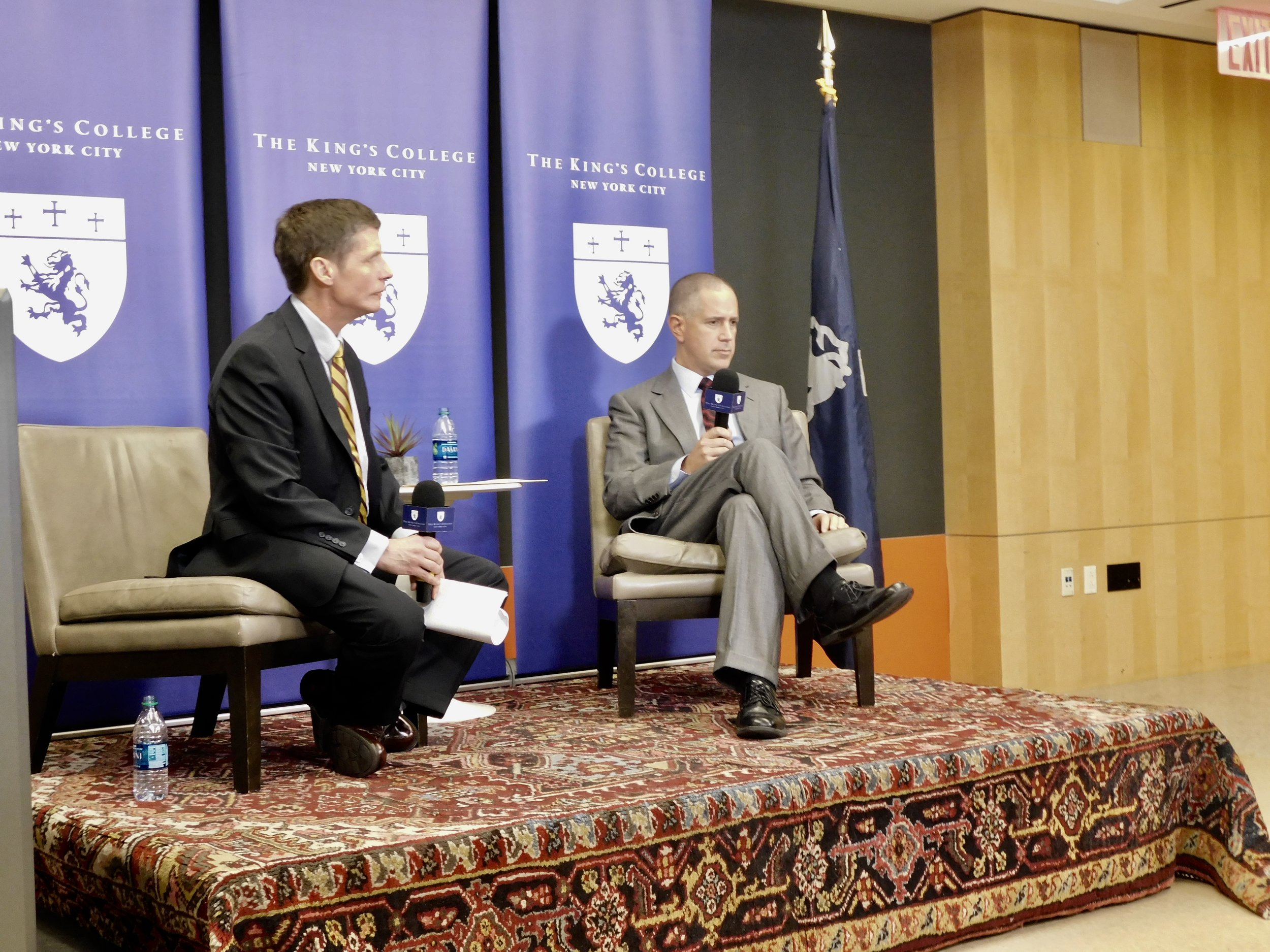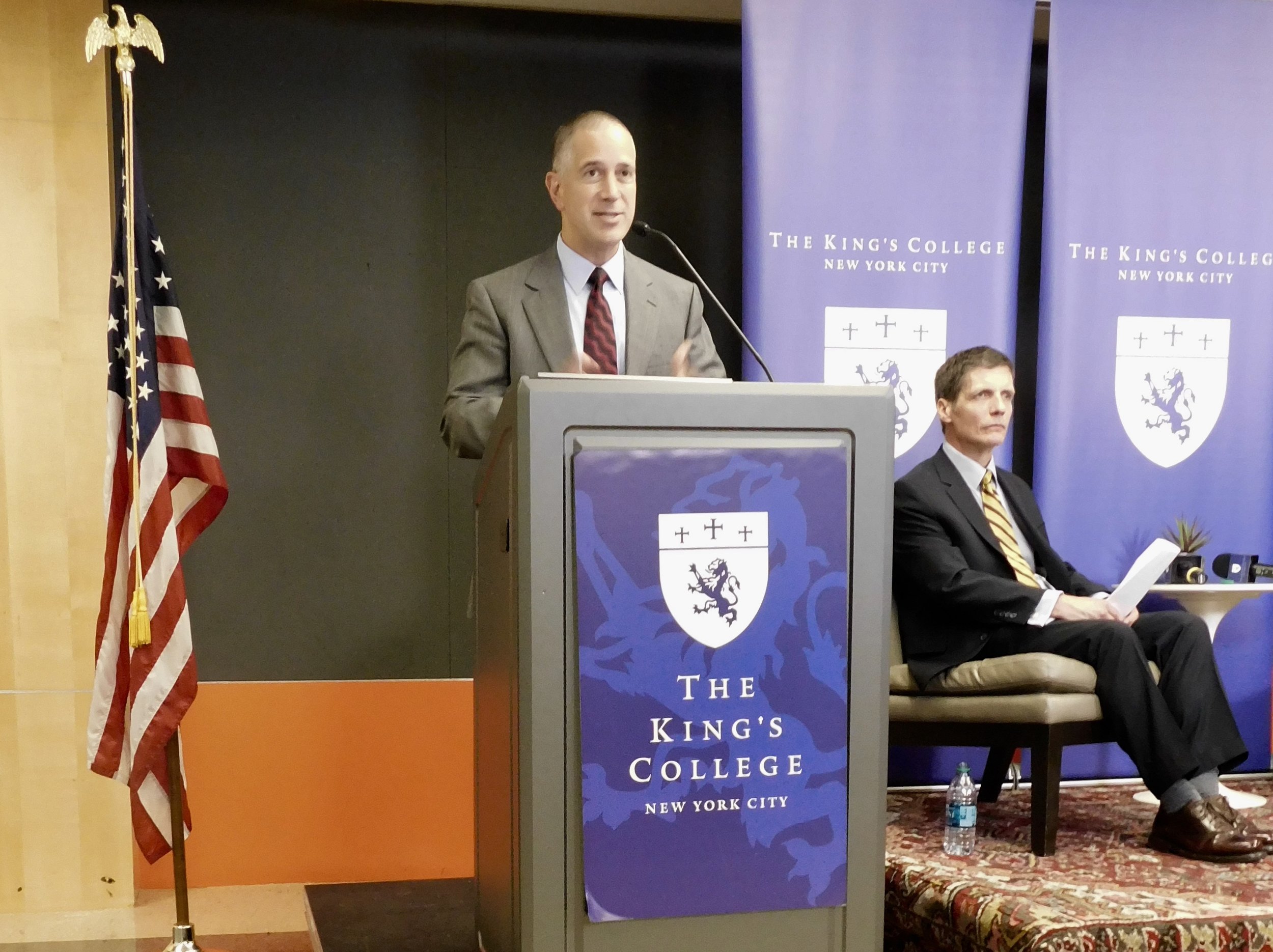Improving Constitutional Memory
|| Photo Credit to Lucas Ebel
“One common misconception about originalism, is that its acceptance is to interpret the constitution solely based upon its creation in 1787.” Dr. David Tubbs said, beginning the Constitution Day lecture by challenging the modern American’s common understanding of the Constitution.
Tubbs delivered the lecture three days after Constitution Day took place on Thursday, Sept. 20th, so that he could be joined by DeGirolami, a Professor of Law and the Associate Director of the Center for Law and Religion at St. John’s University School of Law. The lecture titled, “Slavery, Segregation, and the Supreme Court,” prompted the two professors to offer different takes on the evolution of the United State’s Constitution.
Not even strict originalist judges such as Justice Antonin Scalia believe this, Tubbs asserted. Instead, the Constitution must be understood in the context of the amendments, since amendments, Tubbs claimed, “are as valid as any other part of the constitution”.
These comments set the stage for a lecture largely focused upon the Supreme Court of the Reconstruction Era and how those decisions affect the current court’s actions, as well as affect Americans’ own understanding of the Constitution.
Brown v. Board of Education overturned Plessy, but Tubbs pointed out that they “did not own up to the constitutional error”. “Many judges merely seek to atone for these mistakes.” Tubbs said.
Judges have done this by using the court’s power to create unenumerated rights in landmark cases such as “Griswold v. Connecticut” and “Roe v. Wade”. This use of power creates an entirely new problem, however. By legislating from the bench, Tubbs explained that the Supreme Court has moved the power of constitutional change away from the people’s voice through the Amendment process as laid out in Article V of the Constitution.
By shifting this power, Judges also remove the collective responsibility that the American people have for their Constitution.
Without this responsibility, America has become lazy in its constitutional memory. This, Tubbs said, “makes it easier for Americans to forget about the failure of the Supreme Court in defending against segregation.”
Tubbs’ solution to this problem is to improve the collective Constitutional memory, making it possible for Americans to once again take responsibility for their Constitution.
Though DeGirolami largely agreed with Tubbs, he painted a far bleaker picture of the future of Americans’ Constitutional memory.
“Before feeling good or bad, you actually have to know about it.” DeGirolami said, “We have to claim it as ours, and then remember it.”
According to DeGirolami, the problem is not that our constitutional memory is incorrect, it’s that it is largely non-existent. He links this lack of Constitutional memory to the proper means of amending the Constitution. “It is a historical fact that the Article Five amendment process if very nearly dead today.” DeGirolami said. Furthermore, he was unwilling to attribute the Supreme Court’s creation of new rights to an overreaction to the failures of the Reconstruction Era court.
Instead, DeGirolami gives more credit to the Reconstruction Era court. There were certainly down moments such as Plessy. Then there were successes such as Brown v board of education. “At all times, the court was interpreting constitutional text. Interpretation may have been done badly or well, but it was always an exercise in the interpretation of text”, he said.
This is in stark contrast to the Supreme Court of today, which according to DeGirolami has created rights “out of whole cloth”.
Ending on a somber note, DeGirolami casted doubt on whether America will be able to rebuild its collective constitutional memory, especially considering the unofficial death of the Article Five amendment process.
The two professors took this Constitution Day lecture in a different direction than most would have expected, invoking thoughtful questions from the student body regarding the effect this history has upon modern race relations.
The Constitution Day lecture and response by Tubbs and DeGirolami challenged the King’s College’s student body in unexpected ways, as the students in attendance were forced to think critically about the history of the Constitution and to consider whether they have a proper understanding of Constitutional memory.



